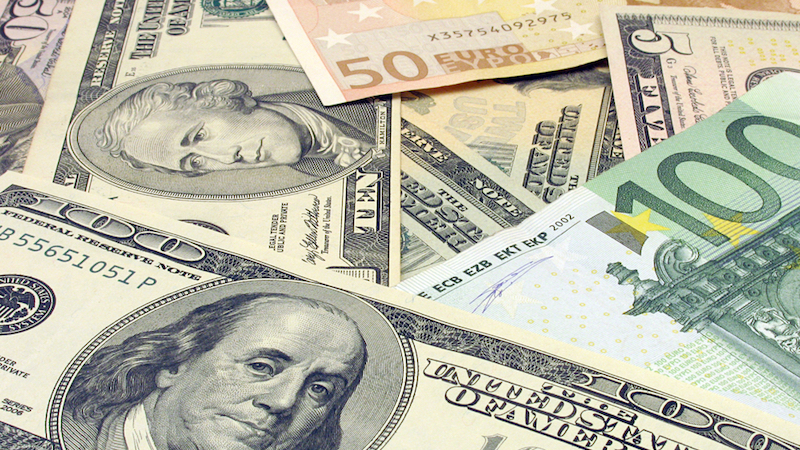Climate finance is not just about big dollar pledges – although those do matter.
It’s also about having the information needed to invest in a green future with confidence.
Under the Paris Agreement, developing countries set out climate targets well before 2020. So when will they find out what support is available to fulfil them?
That was the question posed by Chinese negotiator Zhihua Chen at a press conference on Saturday, the penultimate day of talks in Bangkok.
“It was very much the desire of developing countries to come in and be able to contribute,” said Majid Shafiepour Motlagh of Iran. “We are willing to take actions, but we must be enabled.”
Speaking for the like-minded group (LMDCs) of mostly middle-income countries, home to half the world’s population, Motlagh accused the developed world of stalling.
India’s Ravi Prasad agreed he was “deeply concerned” by “a lack of constructive engagement from the other side”.
Finance is lagging behind other elements of the Paris rulebook, they warned. It is a political issue that ministers will need to engage with to get a robust deal in December’s Katowice summit.
One belated thought on the Like Minded Developing Countries press conference… it's 2018 lads. You represent half the planet. And you couldn't find one woman? #SB48Bangkok pic.twitter.com/rm3KLJdP2Q
— Ed King (@edking_I) September 8, 2018
US blamed for ‘hampering’ talks, shielding others
An AFP report on Saturday pointed the finger at the US for refusing to talk about how future financial commitments to the poor world will be communicated – Article 9.5 for the players – one of the most fractious issues at the last big summit in Bonn.
That’s partly true, but the refusal to budge is being perpetrated by the Umbrella Group, in which the US sits alongside Australia, Belarus, Canada, Iceland, Israel, Japan, New Zealand, Kazakhstan, Norway, Russia and Ukraine.
Is this really a Trump wrecking-on-his-way-out-the-door dynamic? The US negotiators – many of whom remain in place from the Obama state department – are walking a difficult line.
In private, sources close to the delegation say the US diplomats are trying to negotiate rules that would make it politically simple for a future US president to re-enter the deal.
US budget cycles make it difficult for the country to commit money much in advance. That’s a problem shared by other wealthy economies. Poor countries, with some grounds, say this is an excuse and they need clarity to plan. Plus this was something the rich signed up to do in Paris.
Real money
A lot hangs on whether the Green Climate Fund (GCF) board can get its act together at next month’s meeting in Bahrain and start a new fundraising drive.
The fund is a touchstone of rich-poor cooperation, set up to give beneficiaries a bigger say in how to spend climate finance. But it is in trouble after the last board meeting turned toxic.
“It is important to remember that we decided that a significant amount of funds need to be channelled through the GCF,” said Ecuadorean negotiator Andrés Mogro Zambrano. “Without a clear replenishment process for the GCF, we fear that… fulfilling the finance agreement will really mean nothing.”
Edging forward
A draft conclusion for these talks, circulated to heads of delegation on Saturday and shared with CHN, notes “progress achieved in Bangkok provides a useful basis for further deliberations of parties on [the Paris rules] and their successful conclusion in Katowice”.
The draft, which needs approval from the parties, calls on the UN to post “textual outcomes” on its website, indicating the chairs are confident at least some areas of the talks have progressed on to the next stage.
The four chairs (whom we profiled yesterday) make a pitch to delegates to allow them to prepare some compromise proposals between now and Katowice.
Speaking up
Around 40-50 demonstrators, including local fishing and farming folk, made their voices heard outside the Bangkok conference venue on Saturday morning.
“What do we want? Climate justice. When do we want it? Now!” was the chant, along with calls for 100% renewable energy.
Will Brown sign?
Elsewhere, ahead of Jerry Brown’s summit in San Francisco next week, the governor of California is being pressured to bring forward action on that states fossil fuel interests and climate laws.
Towards a global pact
Okay, so it’s unlikely to be much like the proposal launched last year by the unlikely duo of Arnie and Emmanuel. But talks on a universal environmental treaty have begun this week in New York.
This process starts with the question ‘what does the world need’? A jumping off point some said Macron’s 2017 Global Pact for the Environment ignored.
That could mean a universal treaty on environmental rights, or different, single issue deals on plastics and the like. All possibilities remain on the table, says US lawyer Sue Biniaz.
